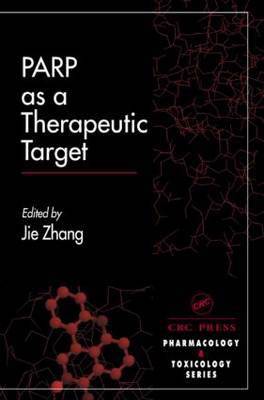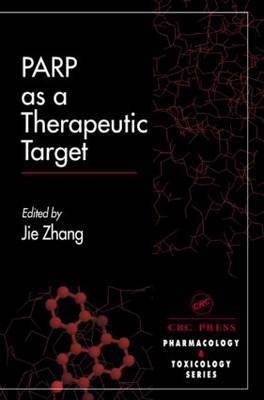
En raison d'une grêve chez bpost, votre commande pourrait être retardée. Vous avez besoin d’un livre rapidement ? Nos magasins vous accueillent à bras ouverts !
- Retrait gratuit dans votre magasin Club
- 7.000.000 titres dans notre catalogue
- Payer en toute sécurité
- Toujours un magasin près de chez vous
En raison de la grêve chez bpost, votre commande pourrait être retardée. Vous avez besoin d’un livre rapidement ? Nos magasins vous accueillent à bras ouverts !
- Retrait gratuit dans votre magasin Club
- 7.000.0000 titres dans notre catalogue
- Payer en toute sécurité
- Toujours un magasin près de chez vous
Parp as a Therapeutic Target
300,45 €
+ 600 points
Description
Recent research in cell death mechanisms has rekindled interest in PARP's (Poly (ADP-Ribose) Polymerase) intriguing role in necrosis and apoptosis. While the details of how PARP1 functions are still being elucidated, it has tremendous potential as a promising drug target. PARP inhibitors' dual actions of preventing cell death and abating inflammation have demonstrated remarkable acute effects in animal models of various diseases.
PARP as a Therapeutic Target covers the clinical aspects of this up-and-coming drug that counteracts the damage done by free radicals. Leading international experts currently working on ways to apply it share their views of recent developments and future directions of PARP research. They discuss its therapeutic potential in various disease conditions, such as ischemia, diabetes, cancer, arthritis, inflammatory bowel disease, and septic shock. The intensified PARP drug development effort has raised expectations for possible clinical trials in the near future to establish the tolerance of PARP inhibitors in healthy humans, its efficacy in treating patients with different diseases, and the long term effect of PARP inhibition. PARP as a Therapeutic Target provides a comprehensive understanding of how PARP works to aid in the better design of its inhibitors for therapeutic purposes.Spécifications
Parties prenantes
- Editeur:
Contenu
- Nombre de pages :
- 360
- Langue:
- Anglais
- Collection :
Caractéristiques
- EAN:
- 9780849300738
- Date de parution :
- 06-03-02
- Format:
- Livre relié
- Format numérique:
- Genaaid
- Dimensions :
- 156 mm x 233 mm
- Poids :
- 701 g

Les avis
Nous publions uniquement les avis qui respectent les conditions requises. Consultez nos conditions pour les avis.





